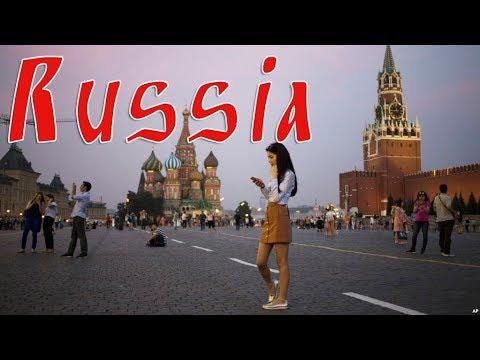When I first set foot in Russia, I was immediately struck by the sheer scale of the country and its diverse culture. Russia, the largest country in the world, stretches across eleven time zones and spans over 17 million square kilometers. It was impossible to grasp the immensity of this place until I started exploring its many facets.
My journey began in Moscow, where the grandeur of the Kremlin and the vibrant life of Red Square captivated me. The Kremlin, a fortified complex that has been the center of Russian political power for centuries, was far more impressive in person than I had ever imagined. Its walls and towers, with their rich red brick and golden domes, seemed to tell stories of Russian history and tradition. The blend of the ancient and the modern was evident everywhere—from the opulent St. Basil’s Cathedral with its colorful, onion-shaped domes to the sleek, contemporary buildings that lined the streets.
As I delved deeper into the heart of Russia, I discovered the profound cultural and historical significance embedded in every corner of the country. For instance, St. Petersburg, often referred to as the cultural capital of Russia, was a revelation. The city was founded by Peter the Great in 1703 and was designed to be a “window to Europe.” Its grand architecture and intricate canals gave it a distinctly European flair. Walking along Nevsky Prospekt, I felt like I was transported to a different era, with its elegant buildings and vibrant street life.
One of the most fascinating aspects of St. Petersburg is the Hermitage Museum, one of the largest and oldest museums in the world. It houses an unparalleled collection of art and artifacts from across the globe, including works by Rembrandt, Leonardo da Vinci, and Michelangelo. The sheer volume and variety of the museum’s collection were staggering. Each room seemed to hold a new treasure, and I could have easily spent days exploring its vast corridors.
Venturing beyond the major cities, I encountered the rugged beauty of Siberia. The vast expanse of this region is often associated with harsh winters and remote landscapes, but it also possesses a unique charm. I found myself in awe of Lake Baikal, the deepest and oldest freshwater lake in the world. Its crystal-clear waters, surrounded by snow-capped mountains, were breathtaking. I learned that Baikal contains about 20% of the world’s unfrozen freshwater, which is a remarkable fact in itself. The lake is not only a natural wonder but also a vital source of water and home to a diverse array of species.
During my travels, I also had the opportunity to experience the traditional Russian way of life in smaller towns and villages. In these places, the hospitality of the locals was heartwarming. I stayed with a family in a quaint village, where I was introduced to Russian traditions such as banya, a traditional steam bath that is an integral part of Russian culture. The experience was both relaxing and enlightening, providing a glimpse into the everyday life of people who maintain age-old customs.
Another highlight of my trip was the Trans-Siberian Railway, which I rode from Moscow to Vladivostok. This legendary train journey spans approximately 9,000 kilometers and crosses eight time zones. The landscapes I witnessed were as diverse as they were stunning, from the rolling plains of the European part of Russia to the dense forests and sweeping steppes of Siberia. Each stop along the way offered its own unique experience and allowed me to meet people from different walks of life.
One fact that truly amazed me was Russia’s rich contribution to space exploration. I visited the Yuri Gagarin Cosmonaut Training Center, where I learned about the pioneering work of Russian space agencies. Yuri Gagarin, the first human to journey into space, became a national hero after his historic flight in 1961. His achievement marked a significant milestone in human history and cemented Russia’s role in the space race. The center itself was a fascinating place, filled with exhibits and memorabilia that highlighted the advancements in space technology and exploration.
I also discovered the vibrant cultural traditions that define Russia’s identity. Russian literature, for instance, is renowned for its depth and complexity. The works of Tolstoy, Dostoevsky, and Pushkin are celebrated worldwide, and reading their novels provided me with profound insights into the Russian psyche and societal values. Music and ballet are equally significant, with institutions like the Bolshoi Theatre in Moscow being world-renowned for their performances.
Russia’s cuisine was another delightful discovery. Traditional dishes like borscht, blini, and pelmeni offered a rich tapestry of flavors and ingredients. Each meal seemed to tell a story, and I enjoyed trying various local specialties in different regions. The culinary diversity reflected the country’s vast cultural influences and history.
In reflecting on my travels through Russia, I realize that the country’s vastness and complexity cannot be easily summarized. It is a land of contrasts and surprises, where history and modernity coexist in fascinating ways. From the grandeur of its cities to the serene beauty of its natural landscapes, Russia is a country that continuously captivates and inspires those who take the time to explore it.
